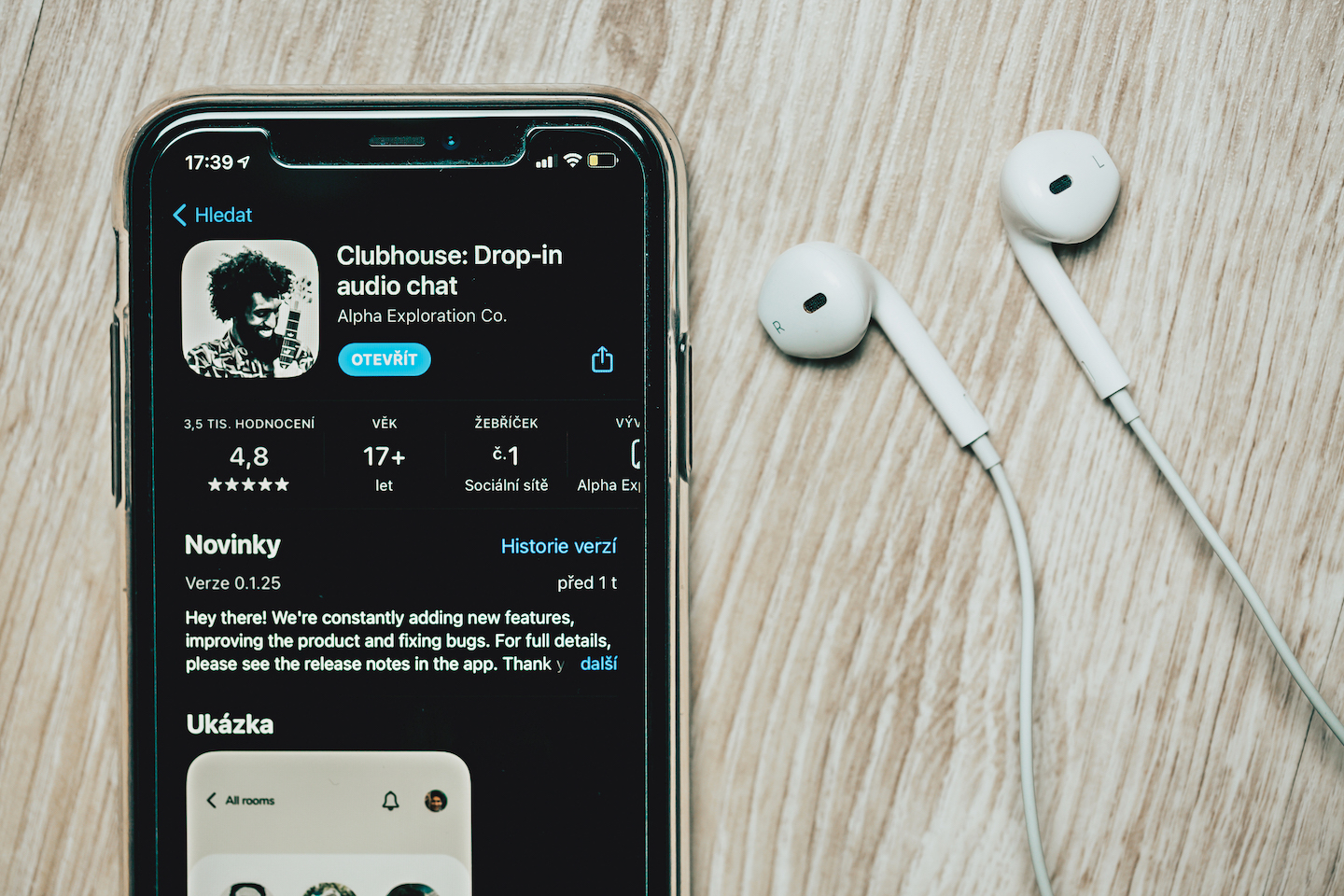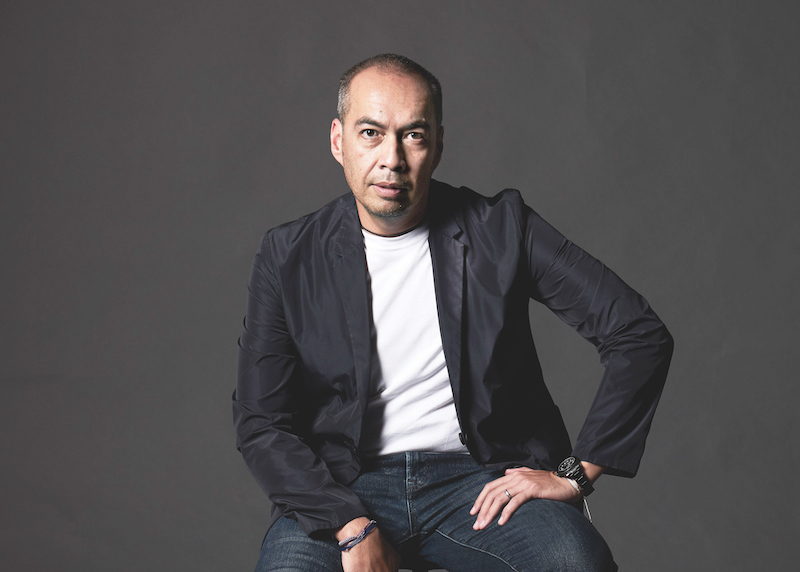
The invite-only Clubhouse is currently available on iOS only.
The hottest status symbol in town is no longer the exclusive luxury bag you can swing from your arm but a high-tech communication device you can hold in your palm. Your smartphone is now your ticket to the most popular club in the world, albeit with a few caveats: you would need an invitation and an iPhone.
People usually want what they cannot have. It is precisely this digital velvet rope that has triggered a sudden “cool urgency” and kept the FOMO-inducing Clubhouse abuzz for the past few months. A cross between a house party and a star-studded live podcast, this platform with audio-chat features allows you to tune in to interviews and discussions between interesting people.
How interesting, you ask? Tech billionaire Elon Musk incited a fanboy frenzy in a talk show called Good Time, in which he answered a series of questions posed by participants and grilled Vlad Tenev, chief executive of stock trading service Robinhood. Users flocked to his room and maxed out the capacity of 5,000 users, causing ruckus and glitches on the platform. Soon after, Facebook’s head honcho Mark Zuckerberg appeared on the programme to discuss futuristic technology being worked on by its Reality Labs group. To no one’s surprise, the social network, which has a penchant for cloning its competitors, is already working on an audio-chat product to rival Clubhouse.
2021-02-02t155734z_227505718_rc2fkl9wil54_rtrmadp_3_clubhouse-stocks-musk.jpg

The mechanics of Clubhouse, which has brought back the spontaneity of real-life interactions, is simple. You can hop from “room” to “room”, dipping your toe in various topics, ranging from influencer culture, race and feminism to venture capitalism. Once you have gained a tight-knit group of members, you can host your own rooms on any topic you like. The quickest way to gain access to the platform is to be invited by a friend who already has an account — each initial user receives two invites to download the app with a phone number.
To the uninitiated, Clubhouse is not exactly new. Having been around since March 2020, this brainchild of Silicon Valley entrepreneurs Paul Davison and Rohan Seth only had 1,500 users before it achieved unicorn start-up status like Uber and Airbnb. Although the US$1 billion app has attracted droves of early celebrity adopters, namely Oprah Winfrey, Drake, Chris Rock, Kevin Hart and designer Virgil Abloh, it has also drawn ire from countries like China, which has already blocked the app to prevent its citizens from discussing sensitive topics. Controversies continue to pile up as user numbers soar — the initial intention of building a free-flowing form of communication has been met with backlash over alleged leniency on harassment and failure to moderate rooms appropriately.
Should you ship or skip it then?
Ship it: If you want new leads for your business or if you want to grow your brand presence on the platform. Although the app does not guarantee success in your business goals, you can share advice and even gain new clients just by exchanging ideas in the interactive discussions. Clubhouse is designed for passive listening too (you do not have to chime in or interact by “raising your hand”). Hosting your own room or bringing in a keynote speaker/specialist is one way to increase reach and engagement.
Skip it: If you are not a fan of disjointed discourse. The app is still in its beta mode, featuring many influential people discussing pressing issues of the day but conversations can easily veer off topic while debates can turn into attacks. Although moderators have the ability to mute speakers on “stage”, biases usually decide who gets muted or not. As often as you may see real technopreneurs giving useful tips or culture critics offering interesting analyses of cult cinema, there are plenty of egoistic pablum and self-promotional talks that contribute to the cacophony. With no recording function, Clubhouse promises that the audio does not leave the app, but its offline effects are already courting contention with issues such as questionable content and misinformation.
---
Serial entrepreneur Bob Chua shares his thoughts on the latest social app that has become a phenomenon.
If you haven’t heard of Clubhouse, my first question to you is: Where have you been? Despite only being launched in March 2020, the app’s success has been due to a combination of factors, a by-product of Covid-19 — the amalgamation of WFH (work from home), an absence of physical conferences and an addiction to celebrity.
But what exactly is Clubhouse? To me, it’s like listening in on a phone call and being able to interject as and when … sort of like a podcast meeting Zoom, but without video. It is also kind of creepy, perverted and narcissistic, if you ask me.
What really propelled the app into the realm of public consciousness would have been the appearance of a certain Mr Elon Musk, whose recent “nerding out” on everything from the exploration of Mars to dealing with Tesla production issues, succeeded in maxing out the Clubhouse capacity of 5,000 per chatroom. I must also mention its elitist approach, which currently operates on a “by invitation only” process and is available only on iOS. Well, it is only elitist for now until every man and his dog gets invited.
But back to Clubhouse’s recent chat that Musk hosted in the past two weeks. What really got everyone talking was how the Tesla tycoon and SpaceX founder grilled Robinhood CEO Vlad Tenev about the latest GameStop debacle. Listeners on Good Time, a regular Clubhouse event, got to hear first-hand how Musk pushed Tenev into a corner and how Reddit bros and Robinhood traders potentially lost millions on the GameStop short squeeze. It was exhilarating, if not a bit squeamish, at times. The grilling eventually got the Robinhood CEO labelled as “Vlad the Impaler”, which proved to be the real tipping point in propelling the awareness of Clubhouse into the mainstream.
Often, it takes an “event” of this sort — or a scandal — to make a brand or an app go viral and put it on the map. Chinese netizens quickly took it upon themselves to thrust themselves onto Clubhouse to create a safe haven to discuss sensitive topics such as Taiwanese democracy and the Dalai Lama, only to be shut down soon after by the Chinese authorities. Reddit had a similar moment around the same time with Wallstreetbets and the Reddit bros. We even had our own short-lived moment with Bursabets, which fizzled out equally promptly.
But back to Clubhouse. Does it have holding power? I believe it will, among a certain niche in the current Covid scenario … or until the next shiny new thing comes along. Consumers are fickle and spoilt for choice today. And is Clubhouse for me? Personally, no … but then again, that was what I said about TikTok, Kuaishou and WeChat, and look where those are headed. — Interview by Diana Khoo
This article first appeared on Feb 22, 2021 in The Edge Malaysia.



